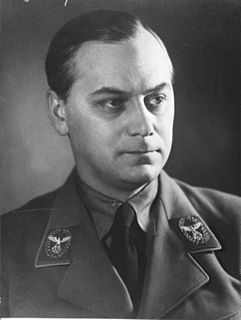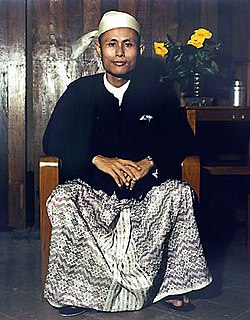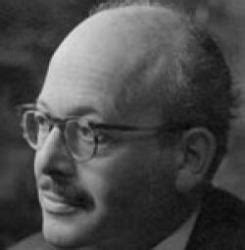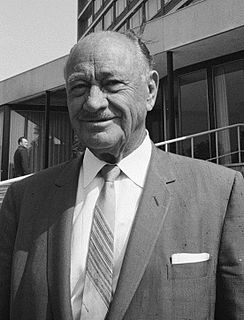A Quote by Thomas Carlyle
Heroism is the divine relation which, in all times, unites a great man to other men.
Related Quotes
On the other hand, heroism is basic to the character of the Nordic peoples. This heroism of the ancient mythic period and this is what is decisive has never been lost, despite times of decline, so long as the Nordic blood was still alive. Heroism, in fact, took many forms, from the warrior nobility of Siegfried or Hercules to the intellectual nobility of Copernicus and Leonardo , the religious nobility of Eckehart and Lagarde, or the political nobility of Frederick the Great and Bismarck , and its substance has remained the same.
It is not merely true that a creed unites men. Nay, a difference of creed unites men - so long as it is a clear difference. A boundary unites. Many a magnanimous Moslem and chivalrous Crusader must have been nearer to each other, because they were both dogmatists, than any two agnostics. "I say God is One," and "I say God is One but also Three," that is the beginning of a good quarrelsome, manly friendship.
I am well aware that there is such a great craving in man for heroism and the heroic, and that hero worship forms not a small motif in his complex. I am also aware that, unless man believes in his own heroism and the heroism of others, he cannot achieve much or great things. We must, however, take proper care that we do not make a fetish of this cult of hero-worship, for then we will turn ourselves into votaries of false gods and prophets.
I believe that the first test of a great man is his humility. I don't mean by humility, doubt of his power. But really great men have a curious feeling that the greatness is not of them, but through them. And they see something divine in every other man and are endlessly, foolishly, incredibly merciful.
Religion, therefore, as I now ask you arbitrarily to take it, shall mean for us the feelings, acts, and experiences of individual men in their solitude, so far as they apprehend themselves to stand in relation to whatever they may consider the divine. Since the relation may be either moral, physical, or ritual, it is evident that out of religion in the sense in which we take it, theologies, philosophies, and ecclesiastical organizations may secondarily grow.
A man is not merely a man but a man among men, in a world of men. Being good at being a man has more to do with a man’s ability to succeed with men and within groups of men than it does with a man’s relationship to any woman or any group of women. When someone tells a man to be a man, they are telling him to be more like other men, more like the majority of men, and ideally more like the men who other men hold in high regard.
When I meet a historian who cannot think that there have been great men, great men moreover in politics, I feel myself in the presence of a bad historian, and there are times when I incline to judge all historians by their opinion of Winston Churchill -- whether they can see that, no matter how much better the details, often damaging, of man and career become known, he still remains quite simply, a great man.





































